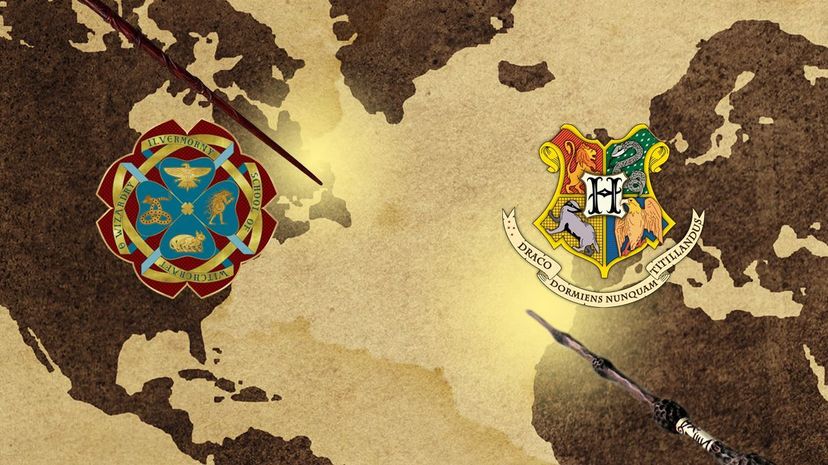
J.K. Rowling first introduced us to the wizarding world of Harry Potter in the 1997 book "Harry Potter and the Philosopher's Stone." In it, she outlined a rich and detailed world centered on the lives of witches and wizards living in England. Her wildly popular seven-story series about the young wizard became a sensation, and the magical world she created for him became so immersive that even today you'll see lots of people wearing trinkets and symbols from the books and films.
With "Fantastic Beasts and Where to Find Them," the 2016 movie set in that universe, audiences get their first glimpse of American wizards.
Advertisement
Not surprisingly, it seems that magical life in Britain, and even in Europe, isn't quite the same as it is in America. Perhaps the most noticeable difference is the terminology that describes nonmagical folk. In Britain, they're called "Muggles," while in the U.S., they're called "No-majs," which is short for "no magic."
That's hardly the only distinction between the two worlds though.
Magical Rulers
One of the main changes lies in the form of governing bodies that create rules for magical folk. In the U.K., they have the Ministry of Magic, which is overseen by the Minister for Magic. Cornelius Fudge, for example, held the position from 1990-1996 during which he proceeded to repeatedly deny the return of Voldemort (bad move, Fudge!).
The very first minister to hold the usually democratically elected post was Ulick Gamp, back in 1707. And yes, the ministry has seen female ministers, with Artemsia Lufkin (1798-1811) being the first.
U.S. wizards, on the other hand, have a president who heads up the Magical Congress of the United States of America (MACUSA), which relocated to New York from Washington in the 20th century.
Another key difference? The Ministry of Magic kept ties with the Muggle government, at least until the 1920s, but the MACUSA did not, fearing reprisals similar to the Salem Witch Trials if they were discovered. Both organizations set laws for how witches and wizards should conduct themselves in public and how they should or shouldn't deal with their nonmagical counterparts.
Wands and Permits
Speaking of laws, one aspect of life that has differed for wizarding folk in the United States was their access to wands. At Hogwarts, students are allowed to bring their wands home during summers and holidays, although they could not use them as this constituted an improper use of magic. At Ilvermorny, the American school, however, this was absolutely not allowed, at least until the repeal of these particular laws — specifically Rappaport's Law, passed in 1790, which instituted total segregation between magical and nonmagical persons — in 1956. Everyone, regardless of age, was required to have a permit for their wand during this time as well. At one time, the MACUSA kept on file a registry of all the wands in the country, even forcing witches and wizards from other countries to register their wands if they wanted to enter the United States with them.
Ilvermorny and Hogwarts
Everyone knows Hogwarts as the British school of witchcraft and wizardry, but in the United States, young magical types are sent to Ilvermorny, which is located on Mount Greylock in Massachusetts. The students are sorted into houses named Horned Serpent, Pukwudgie, Wampus and Thunderbird. A sorting hat doesn't decide the house either; instead, wood carvings of each house select students as they present themselves.
The most popular school sport at Hogwarts would be quidditch, a sport that's so popular that even Muggles are playing.
The differences between the two worlds are many, but probably not much more drastic than those that already exist between the two countries for no-majs like us. Of course, "Fantastic Beasts and Where to Find Them" is the best resource to check out the lesser-known U.S. wizarding world for yourself.
Advertisement